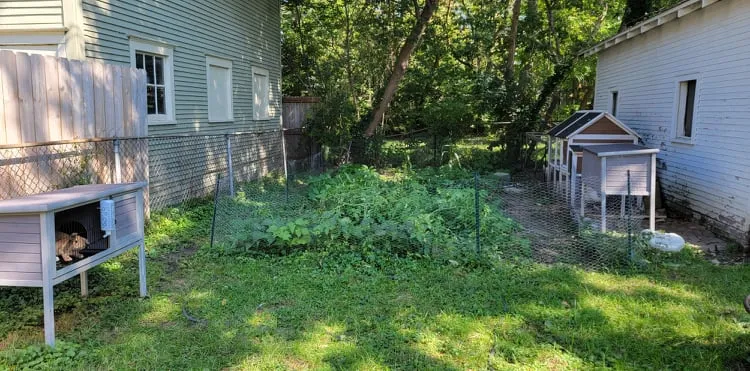
My backyard, complete with garden, male and female rabbits, and egg chickens
The End is Here!!!
Ok maybe that is a little too much, but for sure, prices are going up, inflation is on the rise, and there is increasing instability in the various financial markets. The feeling that something is coming can be felt everywhere, by everyone, and when you throw in the possibility of not being able to go to the store soon without taking a medical procedure, and the growing supply chain issues, the question posed by Capital One, "What is in your wallet?" Is much better phrased at this point, "What is in your pantry?"
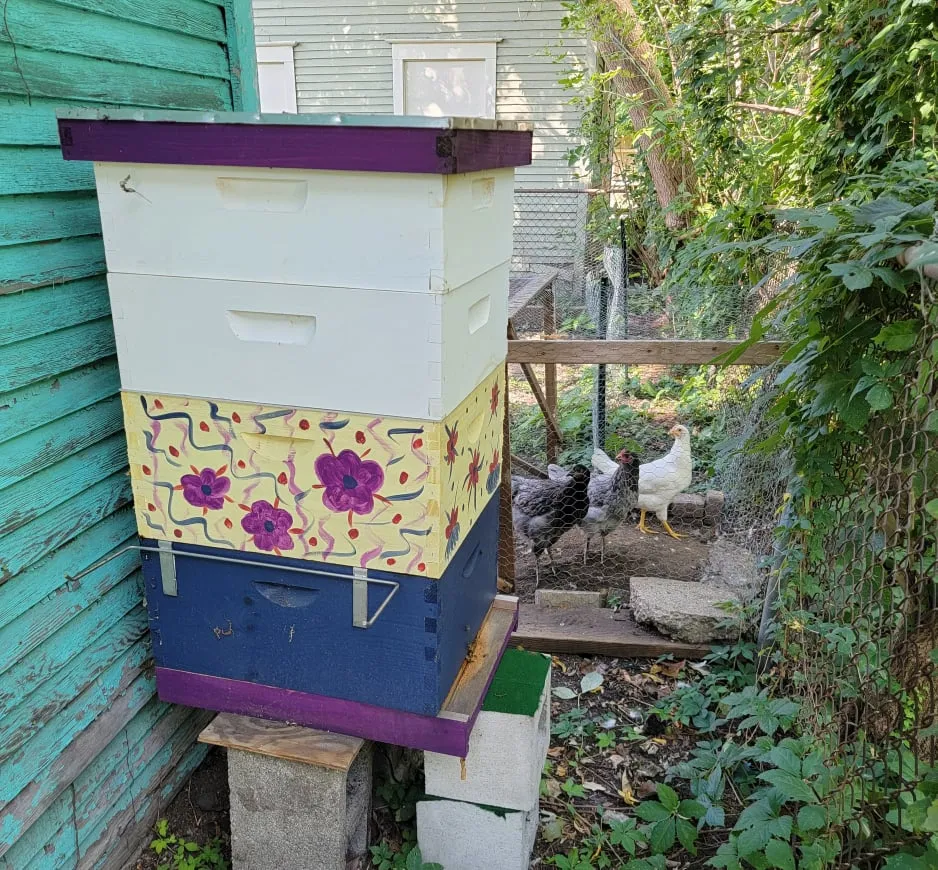
My behind the garage beehive with two honey supers attached
What stage are you in?
So, let me ask, what are you doing to get yourself and your family ready for the coming food shortages? In this post, I will give you some ideas and hints to maybe help you get started, and if you haven't already, this is something you put off to your own detriment at this point. This is not "conspiracy theory" or "speculation," there are literally hundreds of indicators saying that the food supply system is in dire peril. Obviously, having stock animals that can produce food is the best option versus buying from the store, but a lot can depend on where you live and what is allowed. We live in the city, but luckily, we can have small animals and chickens, minus a rooster. Throw in a garden and a beehive, and we have some options available for food, or to trade. It would be nice to have a goat for milk, but my city does not allow that. We are trying to move to a bigger property, but as you can see, we are not sitting on our laurels until then. No, the time to prepare is now!
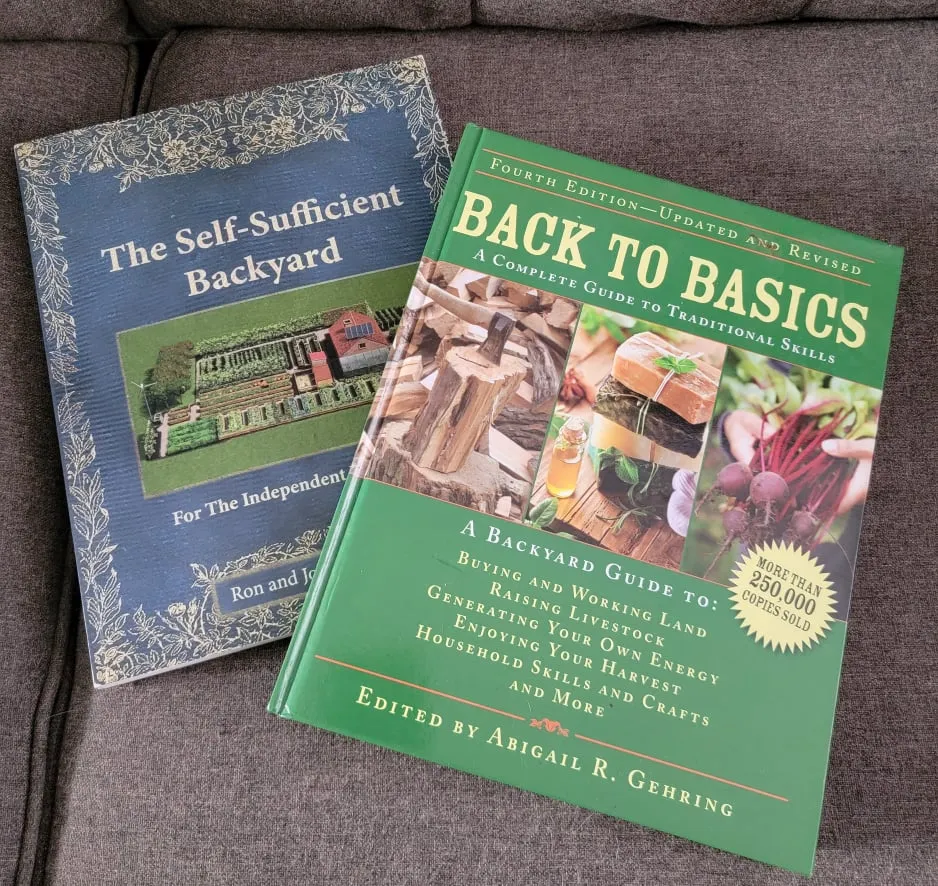
Often overlooked, real books. If the internet goes out, where will you get your information?
Knowledge
One of the most important things to have when it comes to making your own food is knowledge. Most people now have very little understanding of food preservation or even how to grow it! There is a lot more to having a productive garden than just planting some seeds and waiting! Experience is another thing you need, so get started now! We have been gardening for two years now, and we have already learned a lot about what plants to plant, how many, and where. The same goes for animals, you have to know how to keep them alive, and when the time comes, how to butcher them and preserve them. Should the electricity or internet go out, where are you going to get your information from? It is a very good idea to buy some real books, and the two shown above are both excellent resources to have on hand. Medical books are also not only recommended but necessary.
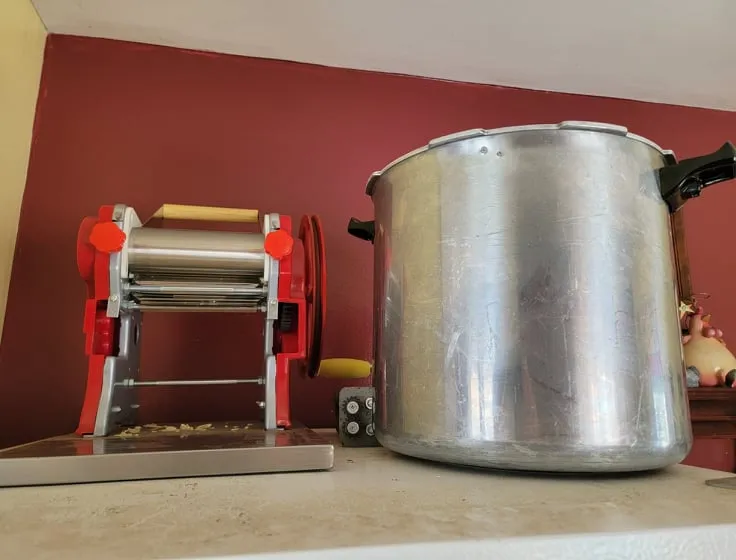
Noodle makes and a pressure cooker (Never mind the dirty refrigerator top...)
Tools and equipment
When it comes to food preservation you need to have either a hot water bath canner or a pressure cooker. I recommend a pressure cooker because it allows you to do other things as well. Sterilize medical equipment, cook large meals fast, and several other uses can be found for pressure cookers. As you can see, I also have a noodle maker that can be used for several different kinds of noodles. No, you do not need one to make noodles, but they come in handy for sure. Do not forget, you also have to have canning jars!
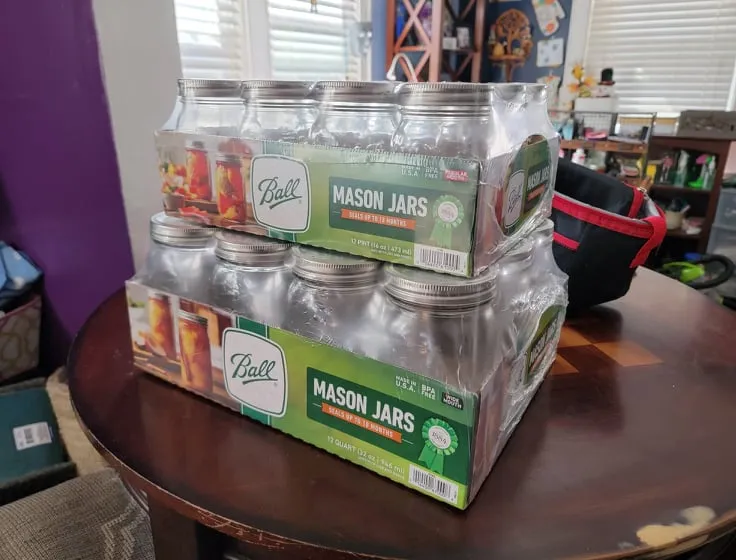
Just some of our many canning jars
Canned goods
Canned goods are great for long-term storage, but the ones you buy from the store must be rotated and used by the date. Now that is not saying that canned goods go bad by the date because they do not, but it is still good practice to rotate and use your canned stock regularly. If you do use canned food past its shelf life, make sure to check for whether it is still good, color, smell, etc, and always cook thoroughly! Canning your own produce to me is the best. Not only can you see what is inside, you know what went into it!
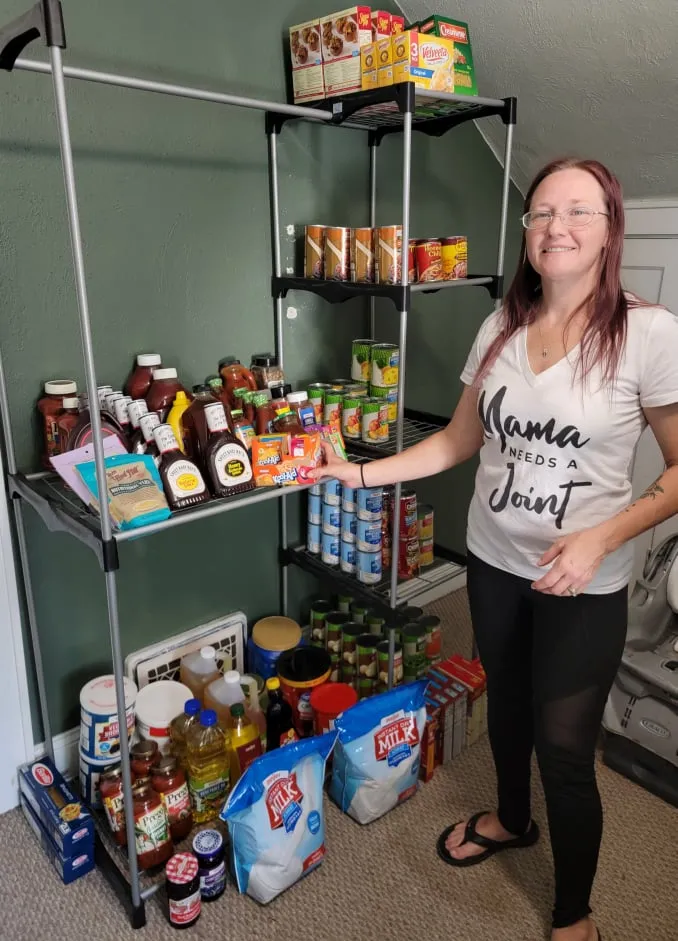
Our upstairs canned goods pantry
Drygoods
Some things that people overlook are ingredients from the "old ways" so to speak. Baking powder, baking soda, lard, shortening, condensed milk, and powdered milk are a few things that often get left out of pantries because, in our modern age, they are rarely used. When the time comes for you to cook everything from scratch, you will appreciate having these things to cook with, trust me! Just like ketchup, mustard, and barbeque sauce will make you a hero when the time comes!
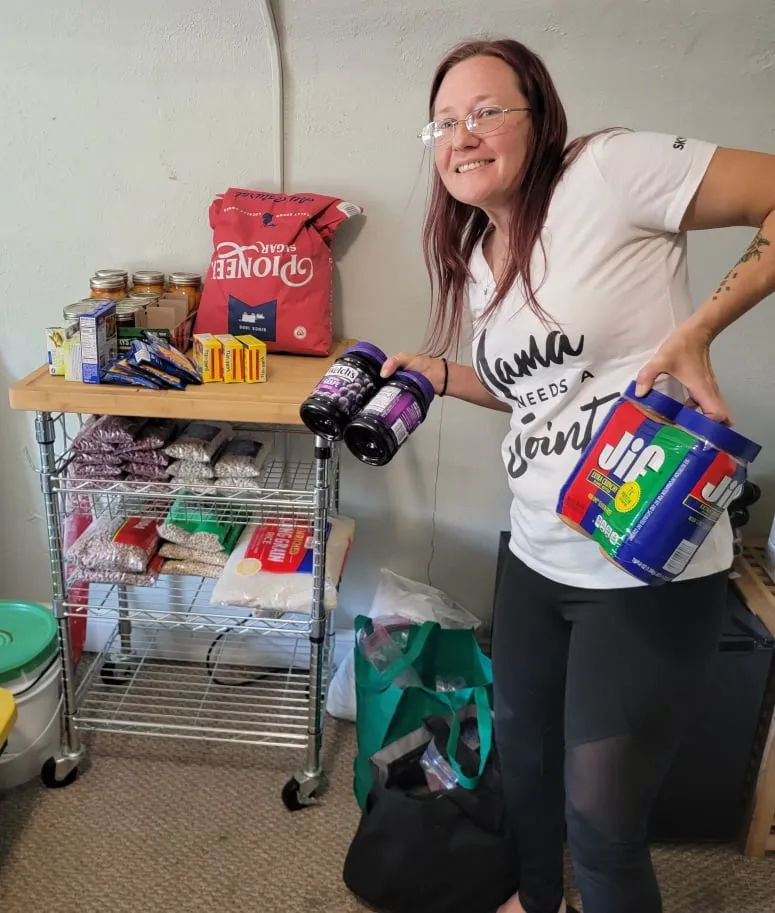
The butcherblock we use for our packing station when packing mylar bags
More drygoods!
Here you can see beans, rice, and sugar that we have yet to pack into mylar bags and seal with oxygen absorbers. We use the rolling butcher block as our packing station, and we have a heat sealer we use to seal the mylar bags we use when we pack smaller packages from larger ones. This makes it easier when the time comes to open a small bag of sugar versus a twenty-pound bag! It is also necessary to pack them with oxygen absorbers to keep out pests. With flour and cornmeal, you have to use a dry hot canning method to pack canning jars for long-term storage. And you can use regular butter to make "ghee" which has an extremely long shelf life. Again, learning how to do these things is essential, and it is essential now! Do not wait until the stores are empty to learn this stuff!
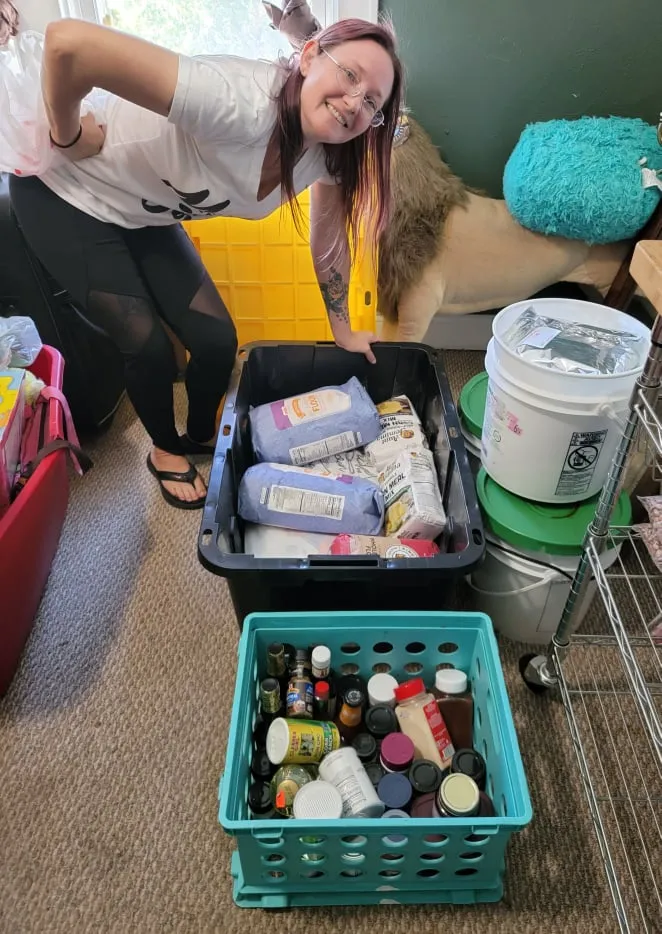
Spices and more stuff to bag and can
